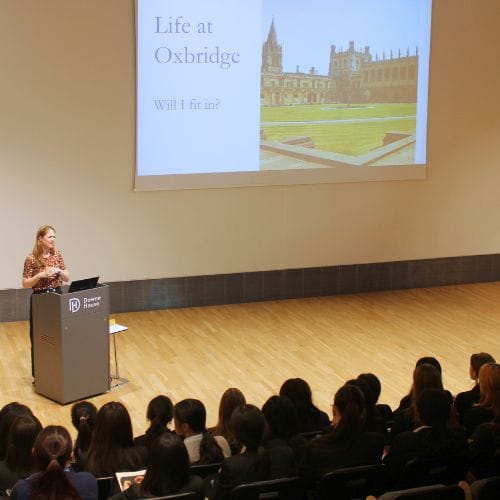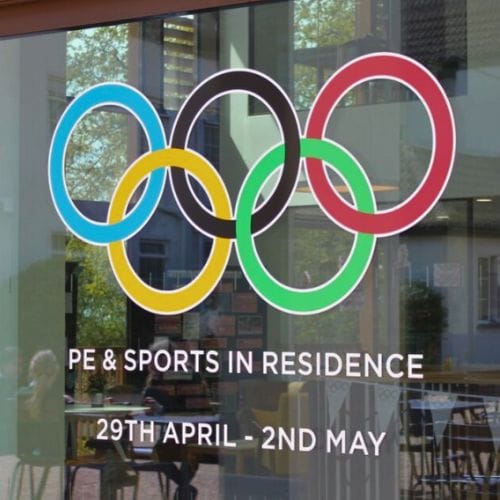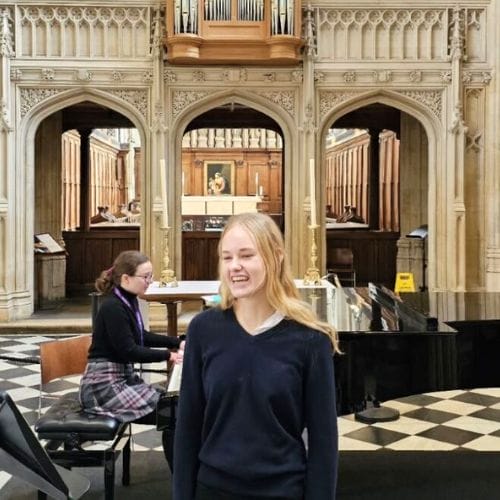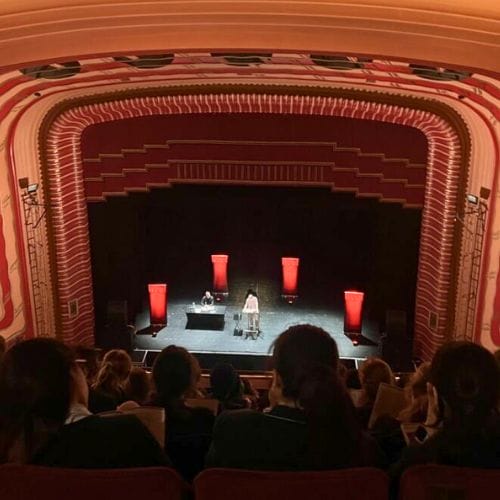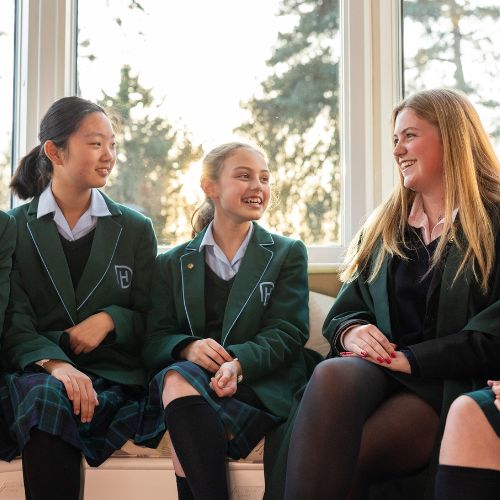
Upper Sixth pupils studying A Level Geography attended Hodder Education’s 2023 Hazards Conference in London.
They gained valuable insights on earthquakes, tsunamis, and volcanoes, and enhanced their understanding of the intricate interplay between physical and human geography factors.
– Miss Rawlinson, Head of Geography
Alice (Upper Sixth) shared her experience of the conference.
On Friday 24 November, the A Level Geography pupils travelled to London to attend Hodder Education’s 2023 Hazards Conference.
The morning began with a talk from Dr Martin Degg, who talked about the Syria and Turkey earthquake that occurred in February. It was interesting to hear about how ‘history repeated itself’ from the 1999 Imzit earthquake in Turkey, and how earthquake forecasting suggested that both the 1999 and the 2023 earthquake would be coming soon. However, not enough was done to prepare for either of the disasters.
Next, Cameron Dunn gave his point of view on why tsunamis are the most devastating of all tectonic hazards, showing us statistics to support his theory. It was also great revision to remember how tsunamis are triggered and how they differ from typical wind waves.
The next lecture was by Professor Fiona Tweed, who talked to us about volcanoes in Iceland and the Mid-Atlantic Ridge. This was particularly helpful as one of our case studies is the E15 volcano in Iceland, so we were able to further our knowledge on this, learning more about the consequences for the eruption and the history of Iceland. I was shocked to learn that one third of the global lava output in the last 500 years has come from Iceland!

After a quick lunch break, Dr Jessica Johnson talked to us about what earthquakes can tell us about volcanoes. It was fascinating to learn more about the physics side of seismic changes and the different forces being applied to the tectonic plates underground.
This was followed by David Redfern, who talked about how the size of an earthquake does not always correlate with the damage and devastation it causes. He gave very useful examples, explaining that factors such as governance, population, economy, infrastructure, culture, natural resources, mitigation, preparedness, education, and the time of day that the earthquake hits are all extremely important in how much the earthquake affects a place. I particularly enjoyed this talk as it linked both the physical geography side and human geography side synoptically, which is very useful for our exam technique.
The final talk was led by the host of the conference, Kate Stockings, who linked all the talks we had heard through the day and helped us relate them to our course and apply them to exam scenarios. The whole conference was extremely beneficial, and it really helped to solidify our understanding of such a large topic, while learning new valuable information that will hopefully differentiate us from other A-Level students in our exams!
